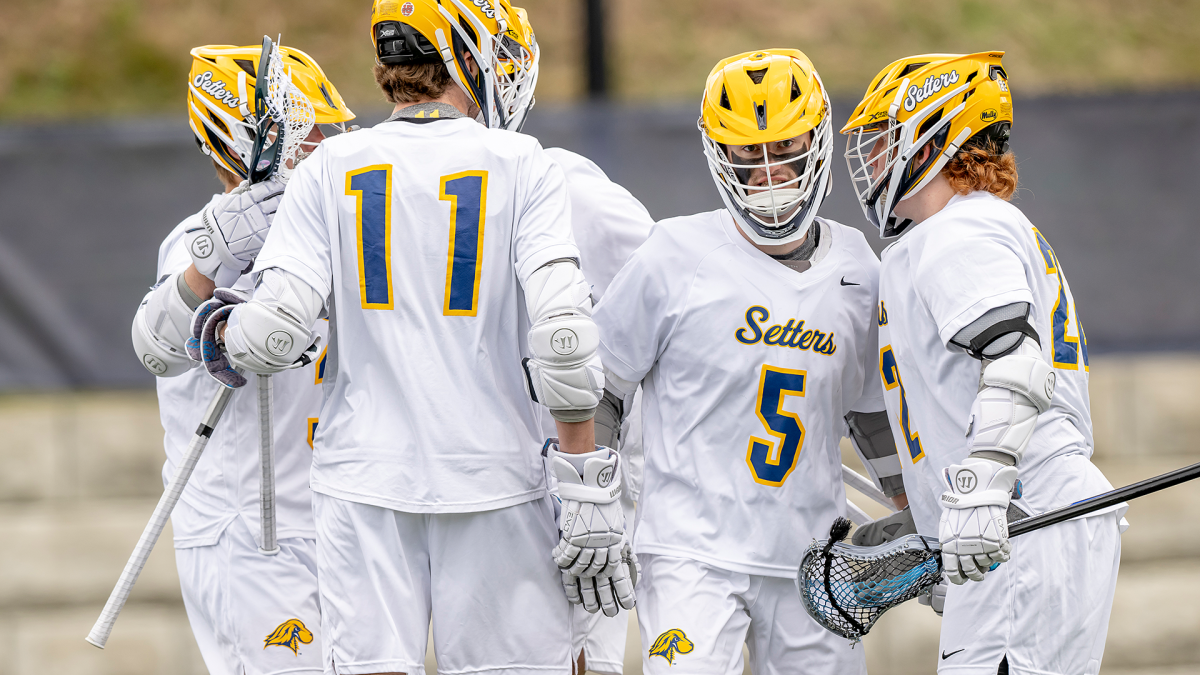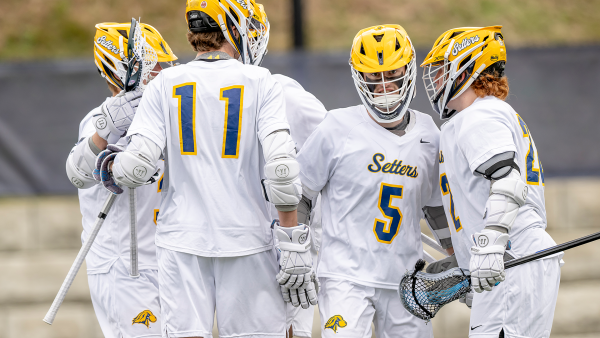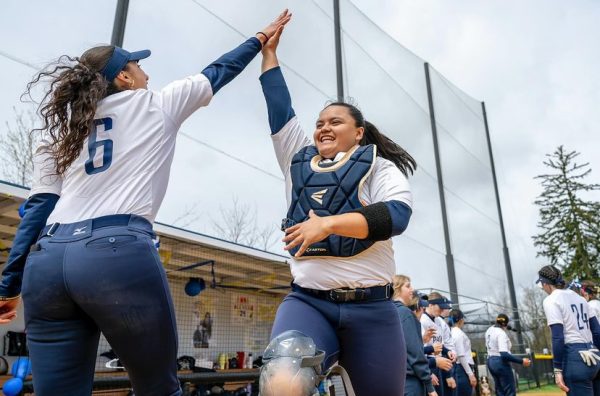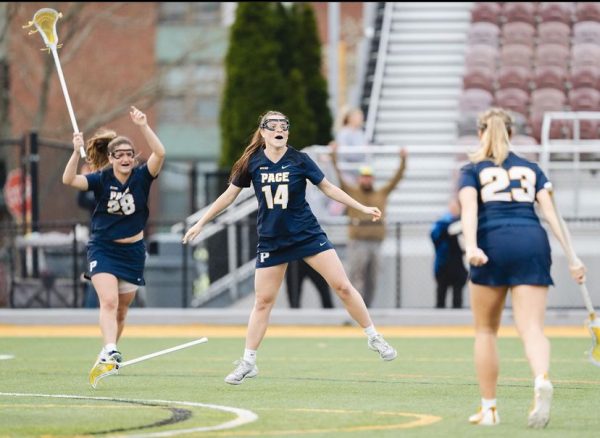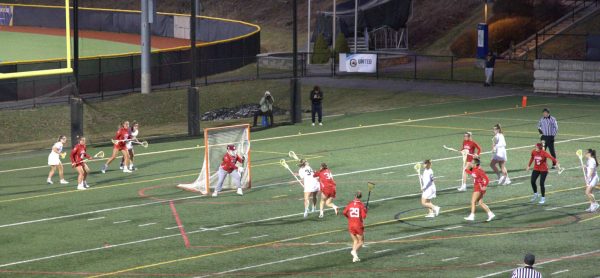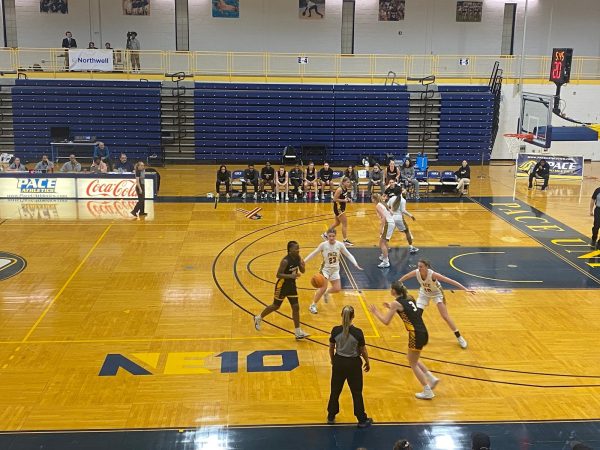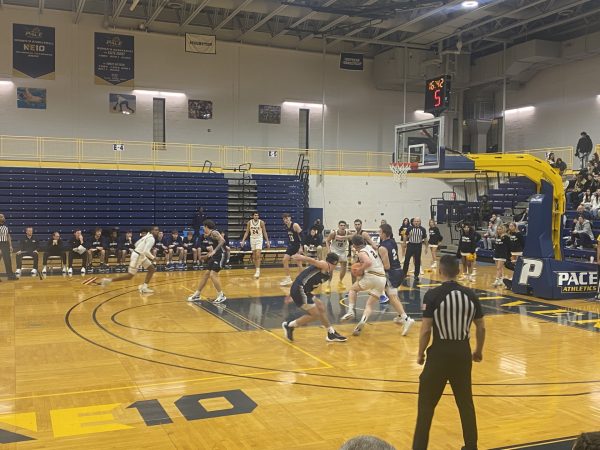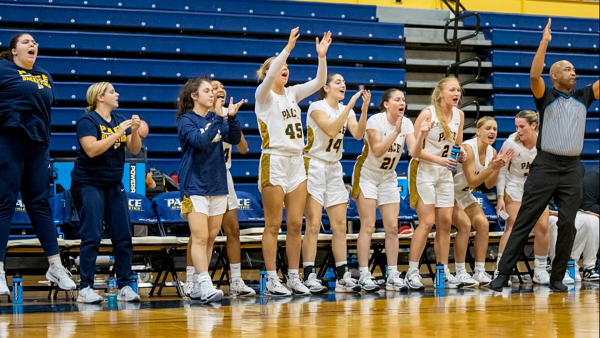The Life of a Team Captain
Men’s lacrosse captain Wyatt Barfoot and Women’s lacrosse captain Casey Gelderman discuss their duties as team captains. Photo Courtesy of Pace U Athletics.
April 7, 2018
Most student-athletes must wait until they are upperclassmen to become team captains, but senior Casey Gelderman—one of four captains on the women’s lacrosse team—has been a captain since her freshman year.
Gelderman entered Pace in 2014 as one of 20 freshmen on the women’s lacrosse team during the program’s first year. The team–which had no upperclassmen–elected Gelderman as a captain, and she was given the responsibility of setting the tone for the program’s culture for years to come.
“I think it was very serious in the beginning because it was about establishing the tone for the whole program and how we were going to build it,” she said. “As a leader, that first year was about taking this seriously, being very good and working really hard. We could have just been like, ‘This is a first-year program, we can just do whatever we want and it’s okay if we lose,’ but I feel like the other captains and I that year really wanted to be good and work hard. It was about setting that tone in the beginning and keeping that mindset.”
The criteria to become a team captain includes strong leadership skills, academic success, excellent on-field play, knowledge of their respective sport, and relaying the messages from the coach to the players.
“It is about communicating and being that bridge between the team and the coaches,” Gelderman said. “It is important to be that person that brings the team together and being someone the younger kids look up to.”
Wyatt Barfoot, a redshirt junior and men’s lacrosse captain, is also trusted in relaying messages from coaches to the players.
Coaches often want Barfoot to stress the importance, to his teammates, of sticking together and being on the same page, not only on the field, but also off it.
During the Fall, the team partook in team challenges and volunteered in the community. During the spring, the team went go-carting together.
From afar, it may just seem like the outings are for players to simply enjoy themselves, but Barfoot says there is a deeper meaning behind them.
“We do those things because we need to get to know the freshmen and new players coming in because once the season begins, you need to have each other’s back as a big family,” Barfoot said. “So, [Coach Tom Mariano] pushes us to really know our teammates–not just know who they are, what their name is and where they are from, but instead you need to know their family, what they like, what makes them tick, and how to motivate them.”
Like Barfoot, Geldereman must also spread knowledge and get accustomed with the freshman class. There was no time that responsibility and veteran leadership was more significant than this season with the team being under the helm of new head coach Tricia Molfetta.
“[Coach Molfetta] had to use [the captains] a lot this year because she came in a bit late and she came into all of these brand-new people and she didn’t really know us. But she got to know the team, our values and what we stand for through the captains,” Gelderman said. “She always says we’re an extension of her as a coach and we have to relay the messages to the rest of the team or enforce the policies she sets.”
Another duty captains take on is to assure the team is ready for game day. Barfoot says his duties as captain are most prevalent the days or week leading up to a game, rather than in-game.
“If there is a week where we have a full week of practice, it can be hard to be motivated on Monday for a Saturday game, but those Mondays are some of the more important days because you need to start the week good,” he said. “So, as a captain during the week, you must keep the players motivated and keep the eyes on the game.”
Once game time arrives, the pressure of being a captain truly hits. Barfoot, Gelderman and other captains must play at the height of their game and stay calm throughout it.
Their emotions can never get the best of them because it can lead down a slippery slope of the rest of the players believing it is acceptable to lose their cool.
“If the referees are calling the game a certain way or something like that, you need to hold your composure and stick to the fundamentals and not go crazy,” Barfoot said.
There is an immense amount of pressure put on captains. Receiving the task of being a leader and elite on and off the field can seriously affect one’s psyche. However, Gelderman and Barfoot were elected captains for a reason and they welcomed the challenge.
“There is always pressure, but I think it helps me that there is no inch for me to slack off,” Gelderman said. “It’s pressure, but I would not say it is always a bad kind of pressure.”
“You’re not just a lacrosse captain but a campus captain,” Barfoot said. “So I try very hard to do well in school, get involved on campus and be an overall good person.”


